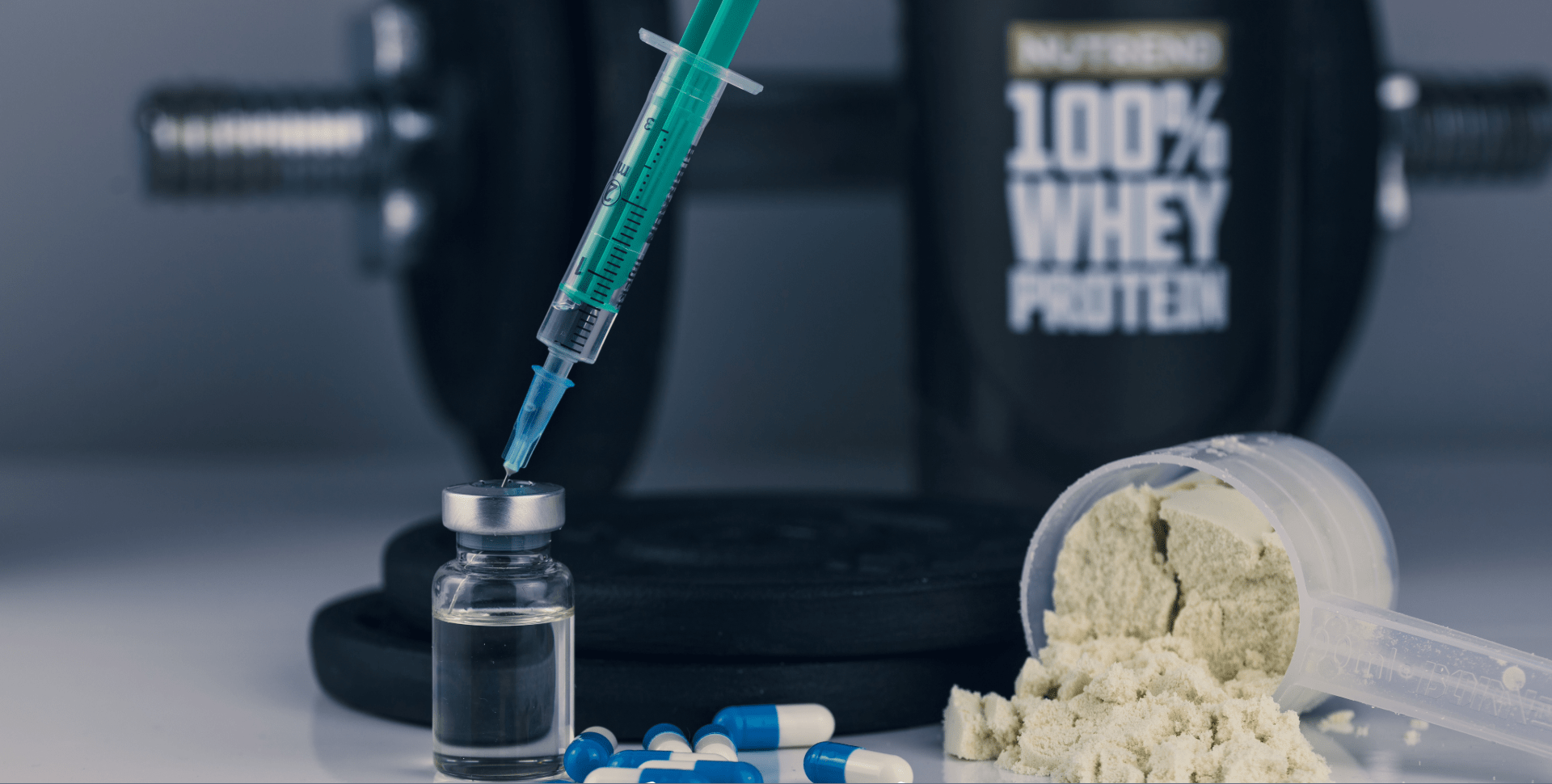Thriving Despite Hormonal Imbalance: Men’s Guide to Resilience
Navigating hormonal imbalance in men can be a significant hurdle, impacting various aspects of their lives. In this comprehensive guide, we will delve into the strategies and techniques that can help individuals not only overcome but thrive in the face of hormonal imbalance. By providing valuable insights and actionable advice, we aim to empower men to enhance their resilience and well-being despite the challenges they may encounter.
Understanding Hormonal Imbalance in Men
What are Hormones and Their Importance
Hormones are chemical messengers produced by the endocrine glands that play a crucial role in regulating various bodily functions. They orchestrate processes like growth, metabolism, mood, and reproductive health. In men, testosterone is a key hormone that influences muscle mass, bone density, and sex drive. The balance of hormones is essential for overall health and well-being. When this balance is disrupted, it can lead to issues such as fatigue, weight gain, decreased libido, and mood swings. Understanding hormones and their significance is the first step towards addressing any hormonal challenges. By grasping the basics, men can better recognize symptoms and seek appropriate interventions to restore balance and maintain health.
Common Hormonal Imbalance Issues In Men
Men can encounter a variety of hormonal imbalances, with low testosterone being one of the most prevalent issues. This condition, often referred to as Low T, can result in reduced energy levels, difficulty in building muscle mass, and problems with sexual function. Other common challenges include hyperthyroidism and hypothyroidism, which affect the thyroid’s hormone production, leading to weight fluctuations, mood changes, and fatigue. Stress is also a significant factor that contributes to imbalances, elevating cortisol levels, which in turn can suppress normal hormone functions. Recognizing these common hormonal challenges in men is crucial for early intervention and management. Men experiencing such symptoms should consider medical evaluation and testing to pinpoint any hormonal irregularities and seek effective treatment options.
Impact of Hormonal Imbalance on Men’s Health
Physical Consequences of Hormonal Imbalance
Hormonal imbalances can lead to a range of physical consequences that diminish a man’s quality of life. Men may experience a decrease in muscle mass and strength, an increase in body fat, particularly around the abdomen, and thinning bones, which can lead to osteoporosis. Additionally, hormonal disruptions can cause low energy levels, making it challenging to maintain an active lifestyle. Skin problems such as acne or dryness, and hair loss or thinning, are also common physical symptoms of hormonal imbalance. Furthermore, hormonal fluctuations can negatively impact cardiovascular health, increasing the risk of heart disease. It’s crucial for men to acknowledge these potential physical consequences and to take proactive steps in collaboration with healthcare providers to prevent and manage hormonal imbalances.
Emotional and Psychological Impact
The impact of hormonal imbalances extends beyond physical health, significantly affecting men’s emotional and psychological well-being. Fluctuations in hormone levels can lead to mood swings, irritability, and increased stress, which in turn may exacerbate feelings of anxiety and depression. A man’s self-esteem and confidence can also suffer, particularly if he’s dealing with weight gain, hair loss, or sexual dysfunction. These emotional and psychological challenges can strain personal relationships and impair social interactions. It’s essential for men to recognize that these feelings are often linked to hormonal changes and to seek support from healthcare professionals. Addressing hormonal imbalances can lead to improved mood stability and a better overall quality of life.

Practical Steps to Overcome Hormonal Imbalance
Healthy Lifestyle Choices for Hormonal Balance
Adopting healthy lifestyle choices is pivotal for maintaining hormonal balance. A diet rich in whole foods, lean proteins, healthy fats, and plenty of fruits and vegetables can support hormone health. Regular physical activity, including both cardio and strength training, helps regulate testosterone and other hormone levels. Sufficient sleep, typically 7-9 hours per night, is also critical as it allows the body to regulate hormone production effectively. Stress reduction techniques such as meditation, yoga, or deep breathing exercises can lower cortisol levels, thus preventing the negative effects of stress on hormonal balance. Additionally, avoiding excessive alcohol consumption and not smoking are important factors in maintaining hormonal health. By incorporating these healthy habits into daily routines, men can significantly improve their hormonal balance and overall well-being.
Medical Intervention: When and Why?
Medical intervention for hormonal imbalances should be considered when lifestyle adjustments fail to yield improvements, or when symptoms significantly disrupt daily life. Consultation with a healthcare provider is essential for accurate diagnosis through blood tests, physical exams, and a review of symptoms. Hormone replacement therapy (HRT) may be recommended to restore hormonal levels to their optimal range. This treatment can alleviate symptoms such as fatigue, mood swings, and sexual dysfunction. In addition, medications may be prescribed to address specific conditions like thyroid disorders. It is vital to understand that medical intervention is not a one-size-fits-all solution. It requires careful consideration, often involving a risk-benefit analysis by both the patient and the healthcare professional. Regular monitoring and adjustments are critical to ensure the effectiveness and safety of the treatment plan.
Resilience: Thriving Despite Hormonal Imbalance
Building Emotional Strength to Overcome Adversity
Building emotional strength is crucial when facing the adversity of hormonal challenges. It involves developing a mindset that helps in coping with stress and change. Mindfulness and cognitive-behavioral techniques can be effective in managing negative thoughts and emotions. Men should seek to foster a support network of friends, family, or support groups, as talking about challenges can significantly reduce psychological stress. Setting realistic goals and celebrating small victories can also boost morale and provide a sense of achievement. Learning to be kind to oneself and practicing self-compassion is another key aspect of building emotional resilience. Accepting that setbacks may occur and viewing them as opportunities for growth rather than failures is a powerful way to build emotional strength and thrive despite hormonal challenges.
Physical Resilience: Exercise, Diet, and Hormonal Health
Physical resilience is a cornerstone of thriving in the face of hormonal challenges. Regular exercise is one of the most effective ways to bolster hormonal health. Engaging in both resistance training and aerobic activities can improve insulin sensitivity, boost testosterone levels, and enhance mood. A balanced diet that includes a variety of nutrients supports hormone production and helps maintain a healthy weight. Foods rich in omega-3 fatty acids, antioxidants, and fiber are particularly beneficial for hormonal balance. Additionally, ensuring adequate intake of vitamins and minerals, such as vitamin D and zinc, is important for endocrine health. Consistency in these habits is key, as the benefits to hormonal health accumulate over time. By prioritizing exercise and nutrition, individuals can build a strong physical foundation that supports hormonal balance and overall health.
Case Studies: Men Overcoming Hormonal Challenges
Inspiring Stories of Overcoming Hormonal Imbalance
Real-life stories of men who have successfully navigated hormonal challenges can serve as powerful motivation. One such story is of John, a middle-aged man who faced declining testosterone levels. John’s journey began with acknowledging his symptoms, which included fatigue and decreased libido. By consulting with an endocrinologist, he received a tailored treatment plan that included lifestyle modifications and hormone replacement therapy. Over several months, John experienced a significant improvement in his energy levels and overall mood. Another story is of Alex, a young adult with hyperthyroidism. With medical guidance, Alex implemented dietary changes and stress management techniques. His commitment to these changes, along with appropriate medication, led to weight stabilization and a renewed sense of vitality. These stories exemplify that with the right approach and support, overcoming hormonal imbalance is not only possible but can lead to a revitalized and healthier life.
Lessons to Learn from Success Stories
The success stories of men conquering hormonal imbalances offer valuable lessons. First, recognizing and accepting the issue is a vital step towards recovery. It’s important not to ignore symptoms or dismiss them as mere signs of aging or stress. Second, seeking professional help and getting a proper diagnosis can set the foundation for an effective treatment plan. The willingness to adhere to medical advice and make necessary lifestyle changes is essential for positive outcomes. Third, patience and persistence are key, as hormonal rebalancing is often a gradual process. Finally, the role of a supportive network should not be underestimated. Sharing experiences and challenges with others can provide emotional relief and practical advice. These lessons underscore that while hormonal challenges can be daunting, with determination and the right strategies, men can successfully navigate these issues and improve their quality of life.
Conclusion
In conclusion, thriving despite hormonal challenges requires a multifaceted approach that encompasses understanding, proactive lifestyle choices, medical intervention when necessary, and building emotional and physical resilience. By empowering men with knowledge and actionable strategies, we can help them navigate hormonal imbalances and emerge stronger and more resilient.
Understanding the nature of hormonal challenges is the first step towards effective management. By recognizing common symptoms and seeking appropriate medical evaluation, men can identify and address hormonal imbalances early on. Lifestyle adjustments, such as adopting a balanced diet, engaging in regular exercise, managing stress, and getting sufficient sleep, play a crucial role in maintaining hormonal balance and overall well-being.
Medical intervention may be necessary in cases where lifestyle modifications alone are insufficient. Hormone replacement therapy and medications can help restore hormonal levels to their optimal range, alleviating symptoms and improving quality of life. It’s essential for men to work closely with healthcare providers to develop personalized treatment plans that address their specific needs and concerns.
Building emotional and physical resilience is also key to thriving despite hormonal challenges. By cultivating a positive mindset, seeking support from others, and adopting healthy coping strategies, men can better manage stress and overcome adversity. Regular exercise, a balanced diet, and consistent self-care practices contribute to physical resilience, supporting hormonal balance and overall health.
Real-life success stories of men overcoming hormonal imbalances serve as inspiration and motivation. These stories highlight the importance of recognition, acceptance, and proactive management of hormonal challenges. By learning from the experiences of others and applying lessons learned, men can navigate hormonal imbalances with confidence and resilience.
In essence, thriving despite hormonal challenges is about taking proactive steps to understand, manage, and overcome obstacles. By empowering men with knowledge, support, and practical strategies, we can help them unlock their full potential and live healthier, more fulfilling lives.








